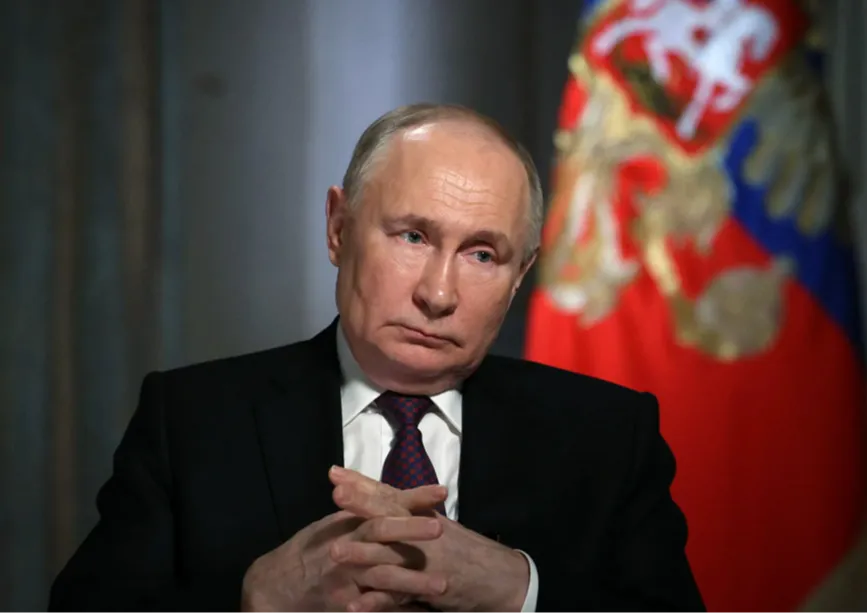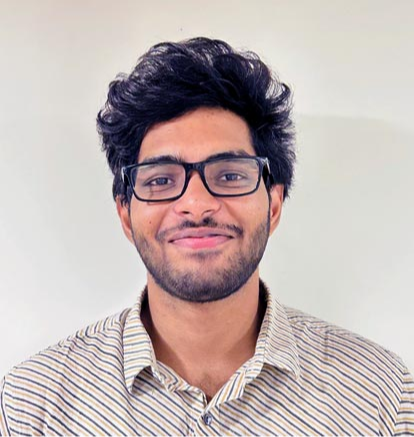
In 2024, elections are taking centre stage worldwide, and this March, the spotlight shines on the world's largest landmass, Russia. The presidential election was held between 15-17 March, with nearly 112 million Russian voters going to the polls. Voting started early in the newly occupied territories in Ukraine and remote areas of the Russian Federation. Despite Putin’s victory in the Kremlin, there were growing shifts in the social attitudes of the citizenry, such as increasing anti-war sentiment and economic stresses, giving way to new trends in this Russian presidential election.
The candidates
Vladimir Putin stood for elections as an independent candidate; this was his first election after the 2020 referendum which allowed President Putin to contest for two additional terms in office. During the annual State of the Union address this February, President Putin announced multiple national projects for the year, including state social and financial support to Russian families and youth, tax relief for entrepreneurs, and increasing spending on educational infrastructure projects, and proposed to write off a percentage of the loans that the regions owe to the federal government giving way to more expenditure on projects in the regions.
Vladimir Putin stood for elections as an independent candidate; this was his first election after the 2020 referendum which allowed President Putin to contest for two additional terms in office.
The Central Election Commission (CEC) approved only three other candidates to oppose Putin: Nikolay Kharitonov of the Communist Party of the Russian Federation, Vladislav Davankov of the newly formed New People’s Party, and Leonid Slutsky of the Liberal Democratic Party.
Kharitonov was in the Duma during the 1990s and contested the 2004 elections, in which he won 13.8 percent of the votes. In his campaign, the septuagenarian had planned to reduce the working age to 55 from 60 and raise pension payments. Kharitonov believes in ending Russia’s membership in the World Trade Organization (WTO), International Monetary Fund (IMF), and other international organisations that, he claims, undermine Russia’s economic sovereignty.
Leonid Slutsky has been a member of the Duma since 2000; with LDPR leader Vladimir Zhirinovsky’s demise, Slutsky was appointed the head of the faction. He is the head of the State Duma Committee of International Affairs and supports Putin’s foreign policy. He was a member of the Russian delegation in the spring 2022 peace talks with Ukraine. Along with tax relief, his campaign includes freezing food prices, combating price inflation, and providing social housing. The Agency for Political and Economic Communication, or APEC, predicts Slutsky to win 4-6 percent of the votes in this election.
Davankov openly supports President Putin but believes negotiations and peace talks with Ukraine are important.
Lastly, Vladislav Davankov, the youngest registered candidate, stood out noticeably. The state Duma deputy holds a liberal stance and is for granting greater freedoms to the LGBTQ; he believes that political prisoners should be released and that abortions should not be banned. More importantly, Davankov differs from other politicians within the system. Davankov openly supports President Putin but believes negotiations and peace talks with Ukraine are important. He avoids discussing the war but identifies himself as a pro-peace candidate within the system.
Non-system politicians
In contrast to candidates entrenched within the established system, certain politicians are categorised as non-system politicians due to the rejection of their candidacy based on bureaucratic discrepancies such as documentation errors or invalidated signatures. Despite lacking favour from the Kremlin, these individuals wield considerable societal influence. In the current election, two prominent anti-war candidates have experienced rejection by the CEC. Yekaterina Duntsova, a respected journalist and former Duma deputy from Rzhev, quickly garnered support for her outspoken anti-war stance and critique of the nation's trajectory. However, the CEC cited document errors in denying her registration. Similarly, Boris Nadezhdin, a seasoned figure in Russian politics advocating for peace talks, encountered rejection due to issues with signature validation. Despite endorsements from notable figures like Mikhail Khodorkovsky and allies of Alexei Navalny, bureaucratic hurdles proved insurmountable for Nadezhdin's candidacy.
Yekaterina Duntsova, a respected journalist and former Duma deputy from Rzhev, quickly garnered support for her outspoken anti-war stance and critique of the nation's trajectory.
Impact of Navalny’s death
Among the non-systemic politicians was Alexei Navalny, who died in an Arctic prison colony in February. He led the anti-corruption movement in Russia and attempted to bring in a new civil society discourse in Russian society. To keep Navalny out of politics, he was arrested on charges of vandalism and, later on, extremism until his death this February. Many vigils were organised across Russia to remember the pro-democracy activist. In a recent interview, even Davankov expressed sorrow over the death of Navalny, revealing the impact it had on the Russian populace.
Rising anti-war sentiment
There is a rising anti-war sentiment in Russia as more than 244,000 Russians are serving on the frontlines. The rising death toll, the fear of another military mobilisation, and the mild pressure of sanctions are all contributing to increasing war fatigue. Despite Russia doing reasonably well in stabilising the economy and posting a growth rate, the volatility of markets and the fear of mobilisations have resulted in nearly half a million working-age Russians leaving the country. Rising inflation and a devaluing ruble add to these economic worries. This explains why even candidates within the established system, such as Davankov, can maintain political viability despite advocating for peace, reflecting pockets of anti-war sentiment in Russian society.
The rising death toll, the fear of another military mobilisation, and the mild pressure of sanctions are all contributing to increasing war fatigue.
Conclusion
The 2024 Russian Presidential election reaffirmed Vladimir Putin's continued leadership, as he secured 87.97 percent of the vote. However, subtle yet significant shifts are underway within Russian society beneath this seeming certainty. The influence of anti-war sentiments, the recent passing of Alexei Navalny and the presence of non-systemic candidates suggest a growing undercurrent of evolving societal attitudes. These emerging dynamics indicate a society where dissent and alternative viewpoints are gaining momentum.
Rajoli Siddharth Jayaprakash is a Research Intern with the Strategic Studies Programme at the Observer Research Foundation
The views expressed above belong to the author(s). ORF research and analyses now available on Telegram! Click here to access our curated content — blogs, longforms and interviews.




 PREV
PREV


